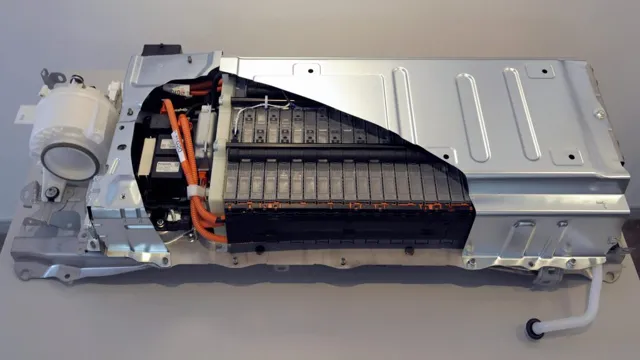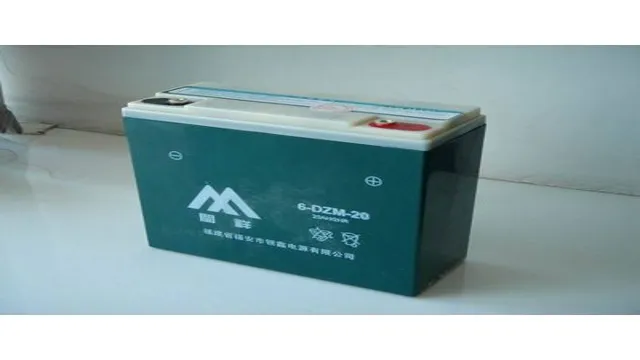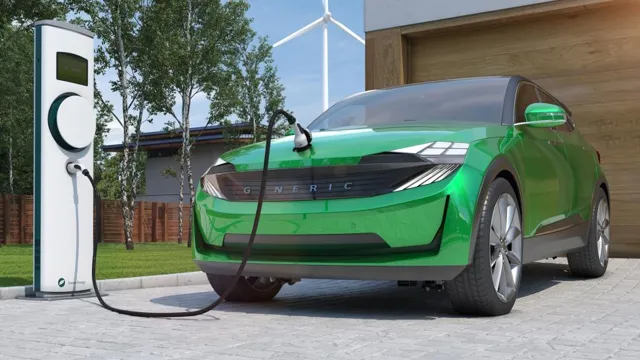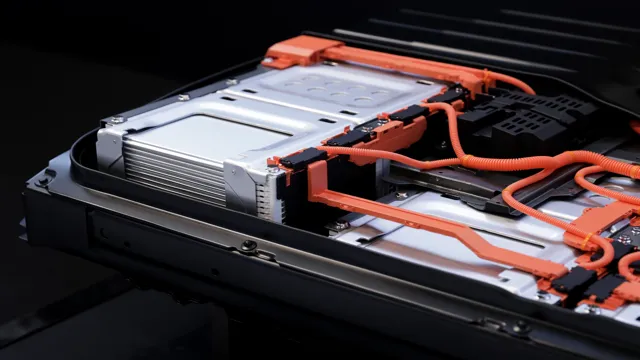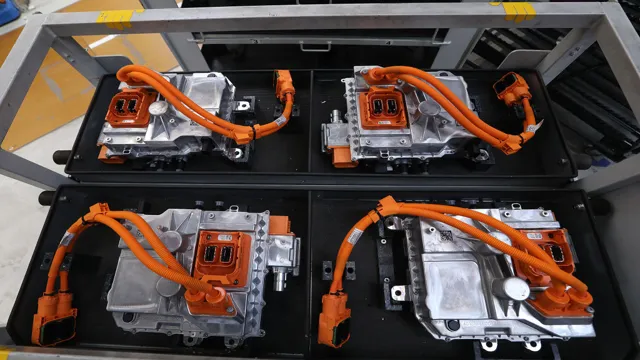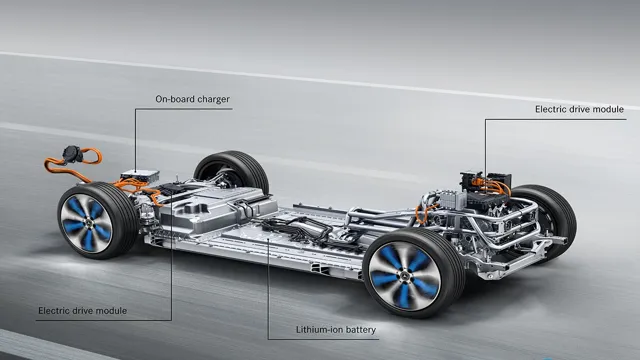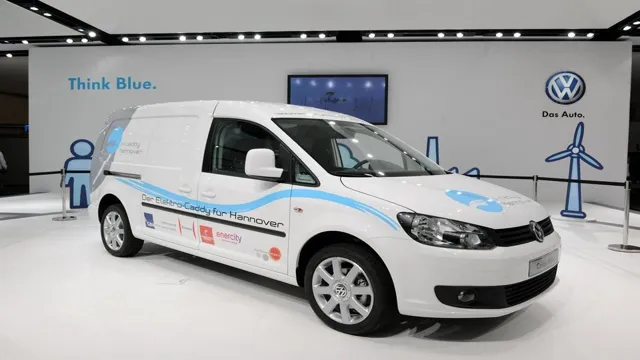Debunking the Myth: Exploring the Truth About Lead in Modern Electric Car Batteries
Electric cars are becoming increasingly popular, and with them, the batteries responsible for powering them. But what about the lead in these batteries? Many people are concerned about the environmental impact of lead-acid batteries and wonder if there are alternatives. While lead is a toxic substance, the good news is that modern electric car batteries use much less lead than traditional car batteries.
Additionally, many companies are working on developing alternative battery technologies that are safer and more sustainable. So, what exactly is the role of lead in electric car batteries, and how sustainable are they? Let’s dive into the details.
What Are Electric Car Batteries Made Of?
Modern electric car batteries typically do not use lead as their primary material. Instead, most electric car batteries are made up of lithium-ion cells. These cells contain a positive electrode made of lithium cobalt oxide or lithium iron phosphate, a negative electrode made of carbon, and an electrolyte solution that allows the movement of ions between the electrodes.
This composition allows the battery to store and release energy efficiently, making it ideal for powering electric vehicles. While lead-acid batteries were once common in cars, they have largely been replaced due to their heavy weight and limited lifespan. Electric car batteries made with lithium-ion technology are becoming increasingly popular as they offer better performance and allow for longer drives.
So, while lead has played a significant role in earlier batteries, modern electric car batteries rarely rely on it as a primary material.
Lithium-ion is the Standard
Lithium-ion is the most widely used battery technology in electric cars today. These batteries consist of stackable cells that contain a positive electrode, a negative electrode, and an electrolyte that allows ions to move between the two electrodes. The most common positive electrode material used in electric car batteries is cobalt, which is known for its high energy density and stability.
However, there are concerns about the ethical and environmental implications of cobalt mining, which has led to the development of alternative materials such as nickel and manganese. The negative electrode is typically made of graphite, which is highly conductive and stable. The electrolyte, on the other hand, is usually made of a lithium salt dissolved in an organic solvent.
While there are other battery technologies being explored, such as solid-state batteries, lithium-ion remains the standard in electric cars due to its high energy density, reliability, and safety.
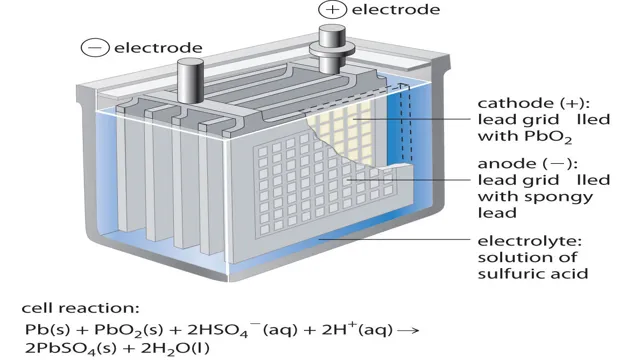
Other Options Include Nickel-metal Hydride and Solid-state Batteries
Electric car batteries come in different varieties, with the most common being lithium-ion batteries. These batteries use a combination of cobalt, nickel, manganese, and graphite to create a chemical reaction that stores and releases energy. However, there are other options available as well.
Nickel-metal hydride batteries are similar to lithium-ion batteries but use nickel instead of cobalt. These batteries are less expensive to produce than lithium-ion batteries but have a lower energy density. Another emerging option is solid-state batteries, which use a solid electrolyte instead of a liquid one to store and release energy.
These batteries have the potential to offer higher energy density and safety than traditional lithium-ion batteries, but they are still in the early stages of development. As technology continues to advance, it is likely that we will see even more options for electric car batteries in the future.
Why Is Lead Considered Harmful?
Modern electric car batteries do not use lead, but it’s important to understand why lead is considered harmful. Lead is a heavy metal that is toxic to humans and animals. It can cause damage to the brain and nervous system, as well as the reproductive system, kidneys, and other organs.
Children are especially vulnerable to lead poisoning, which can result in developmental delays, learning difficulties, and other health problems. Exposure to lead can occur through the ingestion or inhalation of lead dust or fumes from sources such as old paint, contaminated soil or water, and lead batteries. While lead acid batteries are still commonly used in traditional cars and other applications, they are being phased out in favor of newer, safer battery technologies like lithium-ion.
This shift not only benefits public health but also contributes to the growing trend towards sustainable and eco-friendly technology. Overall, it’s important to understand the harmful effects of lead and support the move towards safer, cleaner alternatives.
Lead Pollution Can Have Serious Health and Environmental Effects
Lead pollution has serious health and environmental effects that can have long-lasting consequences. The reason why lead is considered harmful is due to its toxic and cumulative effects. Lead exposure can occur through a variety of sources, including lead-based paint, contaminated water, and industrial emissions.
When lead enters the body, it can interfere with the functioning of vital organs, such as the brain, kidneys, and liver. In children, lead exposure can lead to learning disabilities and lower IQ scores. Lead pollution also has adverse effects on the environment, such as contaminating soil and water and harming wildlife.
It’s important to take measures to reduce lead exposure and prevent lead pollution from occurring in the first place. Through proper disposal of lead-containing products and the use of protective gear in industrial settings, we can help mitigate the harmful effects of lead pollution on both human health and the environment.
Lead Batteries Are Not Used in Modern Electric Cars
Lead batteries may be a go-to option for traditional engine cars, but they are not used in modern electric cars. One of the biggest reasons lead is considered harmful is its toxic effects on human health and the environment. Lead can cause developmental delays, kidney damage, and even death if ingested or inhaled.
It’s also an environmental hazard, as lead can leach into the soil and contaminate water sources. That’s why modern electric car manufacturers have turned to more eco-friendly and safer battery options, such as lithium-ion batteries. These batteries use lithium instead of lead, which makes them much more efficient, longer-lasting, and eco-friendly.
So, if you’re thinking of purchasing an electric car, rest assured that it won’t contain any lead batteries, and you’ll be doing your part for the environment.
What Types of Batteries Do Modern Electric Cars Use?
No, modern electric car batteries do not use lead. In fact, lead-acid batteries were commonly used in older electric cars, but the advanced technology in modern electric vehicles allows for more efficient and high-performing battery options. Lithium-ion batteries are the most common type of battery used in electric cars today.
These batteries are lightweight and have a high energy density, which means they can store a lot of energy in a small amount of space. Other types of batteries that have been used in electric cars include nickel-metal hydride batteries and solid-state batteries, although these are less common. Overall, the shift away from lead-acid batteries has been a major factor in the increased popularity and practicality of electric cars in recent years.
Lithium-ion Batteries Are the Most Common
When it comes to modern electric cars, lithium-ion batteries are by far the most common type used. These batteries are known for their high energy density, long lifespan, and ability to recharge quickly. But that’s not to say that other types of batteries aren’t used, particularly in niche markets.
For example, some electric buses use sodium-nickel-chloride batteries, which are better suited for large vehicles due to their high power output and ability to withstand repeated charging and discharging. Solid-state batteries are also being developed that could offer better performance and safety than lithium-ion batteries, but they’re not yet widely available. Regardless of the type of battery used, one thing is clear: electric cars are getting more efficient and capable all the time, thanks in no small part to advances in battery technology.
Other Options Include Nickel-metal Hydride and Solid-state Batteries
Modern electric cars primarily use lithium-ion batteries, but there are also other battery types that can be used. Nickel-metal hydride batteries were commonly used in older hybrid cars, but they have since fallen out of favor due to their lower energy density. Solid-state batteries are a newer technology that is gaining attention for their potential to offer higher energy density, faster charging times, and better safety compared to lithium-ion batteries.
However, they are still in the early stages of development and have not yet been widely adopted in electric cars. Ultimately, the type of battery used in an electric car depends on a variety of factors, including the desired range, cost, and performance. As technology continues to advance, it will be interesting to see how electric car batteries evolve and improve over time.
Conclusion
In conclusion, it’s safe to say that modern electric car batteries don’t use lead – sorry to lead you on! Instead, these cutting-edge power packs are typically made using lithium-ion technology, which offers a host of benefits over traditional lead-acid varieties. From more energy density and faster charging times to longer lifespans and less maintenance, the switch to lithium-ion batteries has been a game-changer for the EV industry. So while lead will always have its place in the history of battery technology, it’s time to charge ahead with the latest and greatest methods of powering our rides.
“
FAQs
What type of batteries do modern electric cars use?
Modern electric cars use lithium-ion batteries instead of lead-acid batteries.
Why don’t modern electric car batteries use lead-acid batteries?
Lead-acid batteries are heavier, less efficient, and have a shorter lifespan compared to lithium-ion batteries.
What are the advantages of using lithium-ion batteries in electric cars?
Lithium-ion batteries are lighter, more energy-dense, and have longer lifespan compared to lead-acid batteries. They also have faster charging times and better overall performance.
How do lithium-ion batteries affect the overall cost of electric cars?
The cost of lithium-ion batteries has been decreasing rapidly, which has led to a significant decrease in the overall cost of electric cars. However, they are still more expensive than lead-acid batteries, but their benefits make them a more cost-effective option in the long run.
